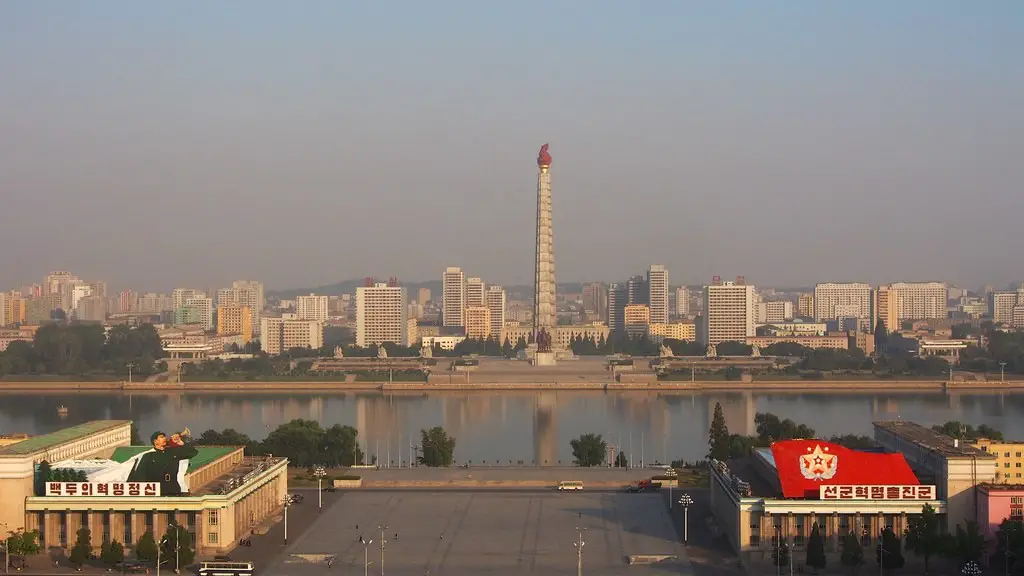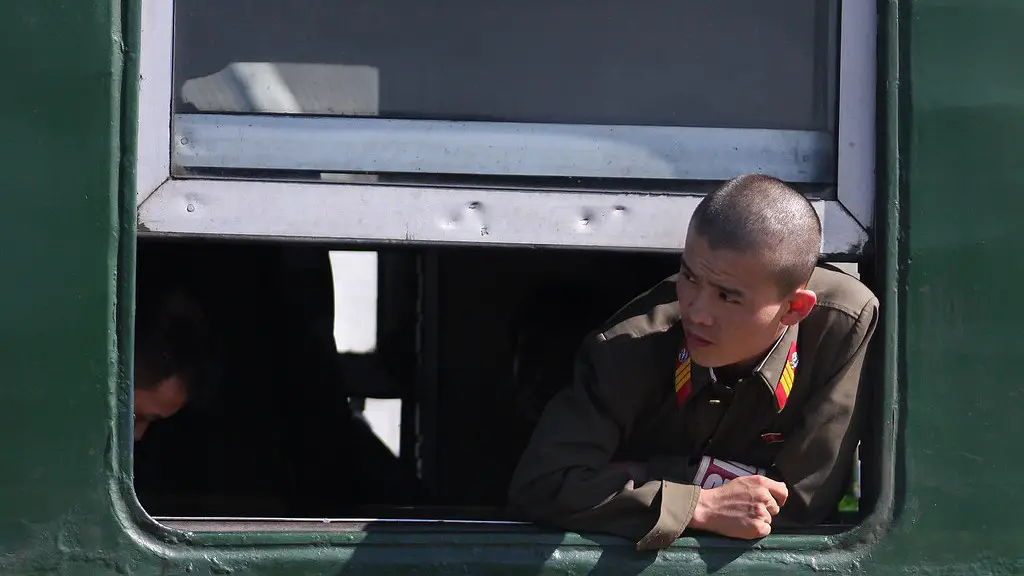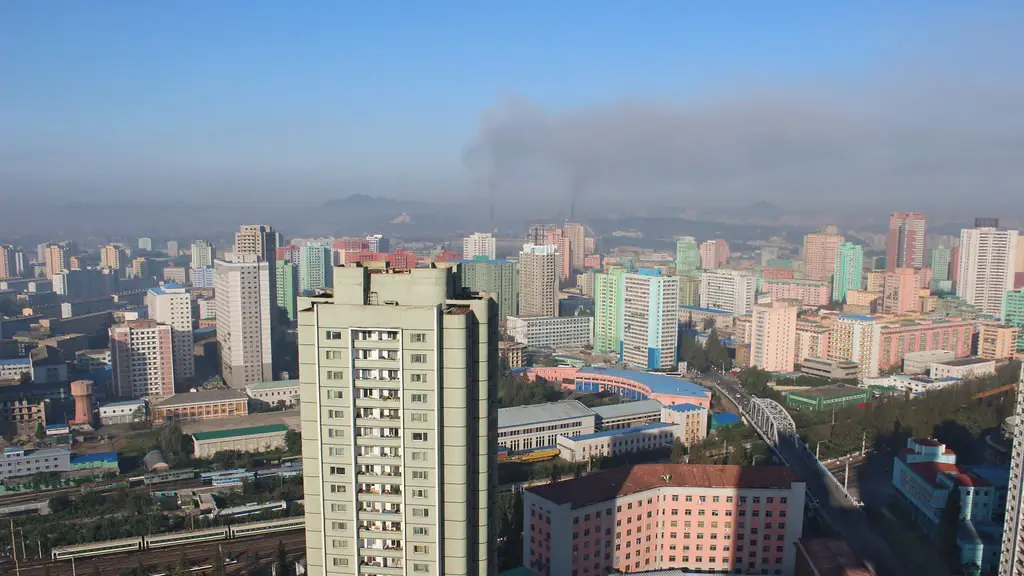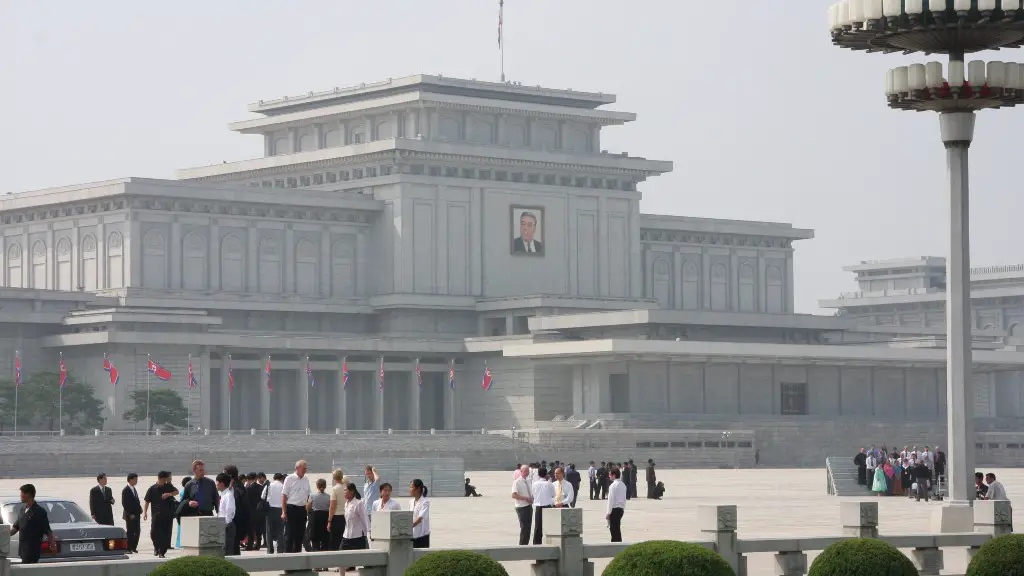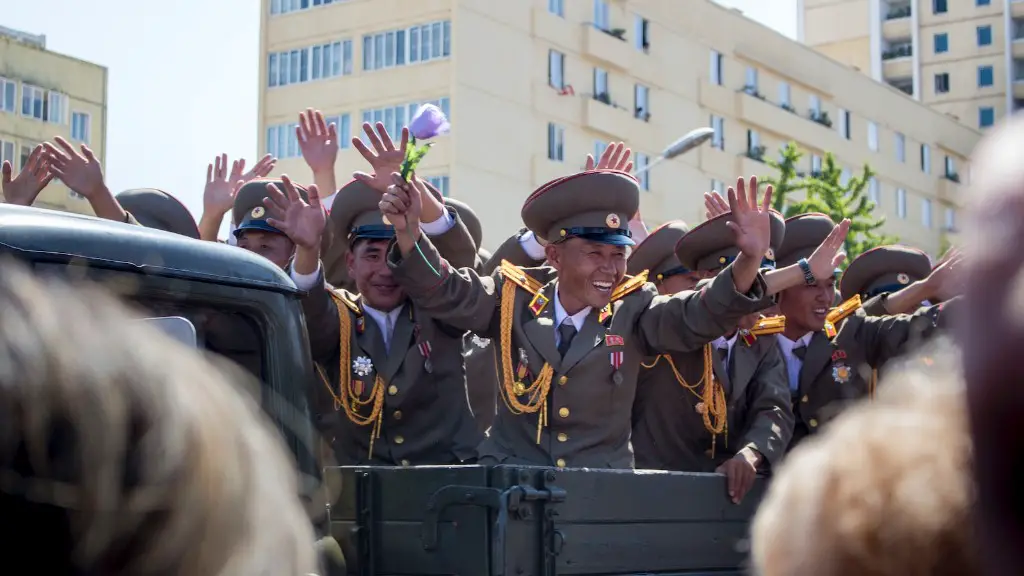Who Does North Korea Hate?
North Korea is a country that is shrouded in mystery, and it’s no surprise to anyone that their relationships with the outside world are not particularly cordial. North Korea has long had a history of bigoted, uncooperative foreign policy, and it’s because of this that the world has grown to view the country in a rather negative light. The question at hand is, who does North Korea hate?
When examining this question, one must first take into account North Korea’s relationship with the United States. While North Korea and the United States have had somewhat of an on-and-off diplomatic relationship, there is no doubt that North Korea deeply, intensely hates U.S. policy and most of what it stands for. North Korea takes great strides in its propaganda efforts to try to paint the United States in a negative light and portray themselves as the victims of global aggression.
The other major first-world country that North Korea actively despises is South Korea. The two nations have been divided for more than seventy years and the North has used a combination of military and ideological means to ensure that their side of the border is closed off to their southern counterparts. North Korea’s government blames South Korea for most of the economic difficulties they face, and they have been known to launch military attacks against the South on a semi-regular basis. In 2020, these tensions reached an all-time high as North Korea tested a series of missiles while warning they would take further action if South Korean military vessels kept crossing the North Korean border.
North Korea also has a long history of hate towards Japan, which goes back as far as World War II. The two nations have had a complicated relationship for years, and North Korea still believes that Japan has not done enough to make amends for their past wrongs. This sentiment has only been exacerbated by Japan’s close alliance with the United States.
In addition to these countries, North Korea also has a history of hating countries such as China and Russia, albeit to a lesser extent. China and Russia have both been reluctant to back North Korea in their international disputes and have tried to keep a more neutral stance. North Korea has also had a long history of international terrorism, so it’s not surprising that there are a number of other countries that view the nation with a great deal of apprehension.
It is clear that North Korea has a great deal of hate towards many different countries. Their foreign policy has been highly criticized and condemned by the international community, and it doesn’t appear that their stance will change any time soon. However, it is important to recognize that there are still some countries who are willing to work with North Korea and try to promote a more peaceful and cordial relationship, for the betterment of the global community.
What Does the North Korean Government Want?
What is most important to the North Korean government in this day and age is not just what it hates, but rather what it wants. On the surface, the North Korean government wants to ensure the survival and reign of the Kim Dynasty, so they are always seeking out alliances, trade opportunities, and foreign investments. But, beneath all of this is a much darker truth, that the North Korean government is actively seeking to expand its power and influence across Asia and beyond.
The North Korean government has long been a major player in the international arms trade, and as such, they seek to acquire as many weapons as possible in order to bolster their arsenal. This is also why North Korea is willing to risk provoking other countries, as it gives them an opportunity to acquire more arms, thereby increasing their military strength.
In addition to weapons, the North Korean government is also actively seeking to develop its economy and improve the living standards of the people living in the country. The North Korean government has touted their development of nuclear weapons and other weapons of mass destruction as a way of “protecting” their country from foreign invaders, but it’s also a way of sending a message to the world. North Korea wants the world to take them seriously and to not underestimate their capabilities.
The North Korean government is also trying to establish itself as a major player on the world stage and is reaching out to some of its more idealistic allies in order to do so. North Korea wants to show itself to the world as a sovereign nation and have a say in the international political dialogues and institutions. All of these activities, however, come at the expense of their own citizens and their human rights.
Is North Korea Truly Isolated?
Despite its bellicose foreign policy, North Korea is far from truly isolated on the international stage. While the mainstream media often paints North Korea as a hermit kingdom, the country does maintains diplomatic links with some of its more friendly neighbours, such as China and Russia. North Korea is also actively seeking out more economic and foreign investment opportunities in countries such as South Korea, and is even looking to establish trade relations with some European countries.
The North Korean government is mainly isolated from the rest of the world due to its aggressive foreign policy and its heavy reliance on international sanctions imposed by the United Nations and other countries. These sanctions have deleterious impacts on the North Korean economy, and they make it difficult for the North Korean government to acquire goods and resources that it needs in order to sustain its current system. As such, North Korea has had to resort to scheming tactics in order to acquire the goods and services it wants and needs.
North Korean state media also uses their isolation as a tool to paint a picture of North Korea as the victim of international aggression and bully tactics. This allows the government to maintain some level of control over the population and by playing up the nation’s “victimhood,” it bolsters the North Korean public’s faith in their government and helps maintain the loyalty of the people to Kim Jong-un.
North Korea is far from being truly isolated from the world, and this is especially evident when one examines the amount of foreign trade, investments, and diplomatic ties that the country maintains with other nations. However, its foreign policy still serves to isolate the nation on the world stage and ensures that the North Korean government can maintain control over its citizens and promote the Kim Dynasty’s dominance in the region.
What is North Korea’s End Goal?
The North Korean government’s end goal is not very clear as they have never publicly revealed what they are hoping to achieve. It’s likely that they are seeking to increase their own power and influence on the world stage, despite being under the watchful eye of the United Nations and its member states. North Korea is actively attempting to expand its military and technological capabilities, in order to be seen as a world power on par with nuclear nations such as the United States and Russia.
Another goal North Korea may be hoping to achieve is to establish closer diplomatic ties with some of its neighbours, in order to gain access to foreign markets and acquire valuable resources. It is also likely that the North Korean government is attempting to create some form of legitimacy for their regime, which could be achieved through the establishment of diplomatic ties with other countries.
The North Korean government has also likely been attempting to build a cult of personality surrounding Kim Jong-Un and his predecessors. By constructing a narrative around the Kim Dynasty and painting it in a positive light, the North Korean government is able to rally its citizens behind the regime and bolster public support for its policies.
What is clear is that North Korea is attempting to increase its power and influence on the international stage. The North Korean government has become increasingly belligerent in its foreign policy and has been willing to risk conflict in order to advance their own agenda. It is important to remember, however, that North Korea does not just want to be feared, but also respected on the international stage and that they still hope to maintain some level of respect from the world’s nations.
How Do Other Nations Cope With North Korea?
The international community has been attempting to cope with North Korea and the threats it presents for many years now. Most of the developed nations of the world have banded together in an effort to keep North Korea’s aggression in check, with the United Nations, the United States, South Korea, Japan, and several other countries imposing a variety of economic and diplomatic sanctions on the North Korean government. These sanctions are intended to curb North Korea’s regime and limit their acquisition of resources, while also trying to send a message that they will not tolerate North Korea’s aggressiveness.
Some countries, however, choose to take a more open approach towards North Korea. China and Russia, for example, maintain diplomatic ties with the North Korean government and, in some cases, even supply them with resources and assistance. These nations recognize that North Korea is a global problem and that it requires a coordinated effort to ensure that their actions do not cause too much harm to the international community.
At the same time, there are also some nations who choose to take a “hands-off” approach towards North Korea. Countries such as Sweden or Switzerland, for example, have seen it as better to remain neutral and not get involved in the international skirmish. These countries recognize the unique situation North Korea finds itself in and believe that the best course of action is to allow the situation to play out on its own and for the international community to remain watchful, but not intervene.
The world’s nations have different ways of dealing with North Korea, but all parties recognize that this is a situation that could have devastating consequences if not handled with care. It is important that the international community come together and strive for a resolution that will benefit both the North Korean citizens and the global community.
Are There Any Processes in Place to Improve the Relationship With North Korea?
The international community has been attempting to find ways to improve the relationship with North Korea for many years now, through a variety of diplomatic channels. The Six-Party Talks, which began in 2003 and included North Korea, the United States, Japan, South Korea, China and Russia, had been the primary diplomatic tool aimed at achieving a resolution to the conflict on the Korean peninsula. This process was intended to provide a framework through which the North Korean government could come to an agreement with the other nations involved and create a more amicable relationship with the outside world.
Despite the Six-Party Talks proving largely unsuccessful, several other initiatives have been put in place in order to try and bring the necessary parties together. These include various meetings between high-level officials of the various countries involved, as well as a series of non-governmental talks between North Korean and South Korean academics and policy makers. The goal of these talks is to try to bridge the divide between the two Koreas and create a more peaceful atmosphere.
The international community is also attempting to improve diplomatic relations with North Korea by providing the country with economic aid and technology. This is a risky venture, as this aid could potentially be used to help North Korea to further develop its weapons programs. However, it is seen as a necessary risk in order to help the North Korean people, who are often deprived of basic amenities and access to resources.
